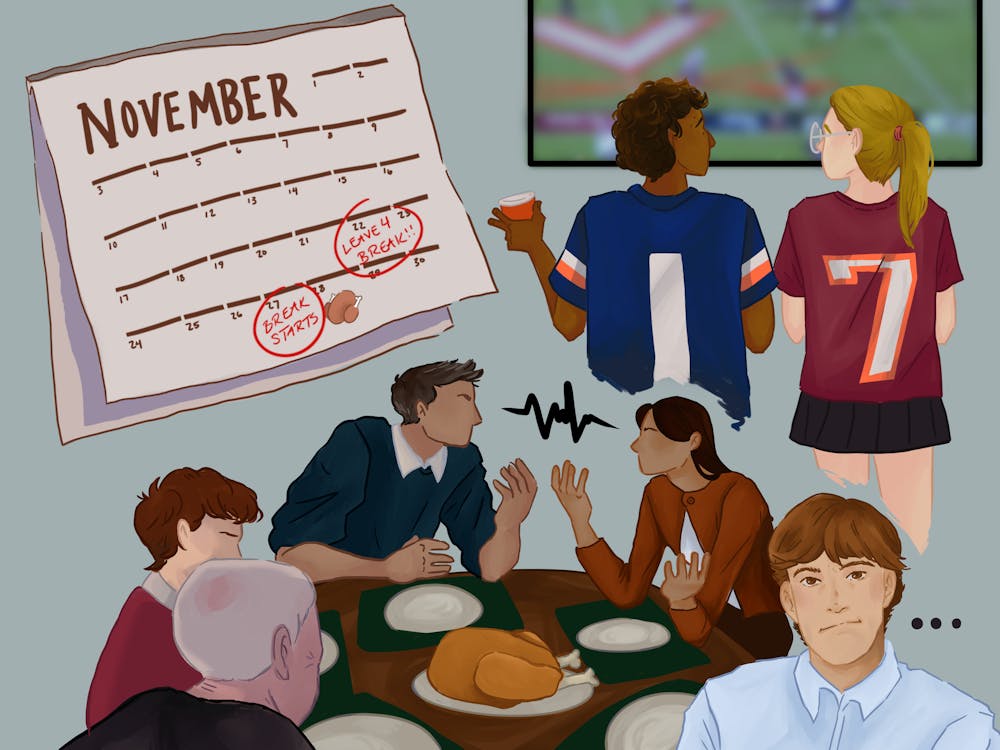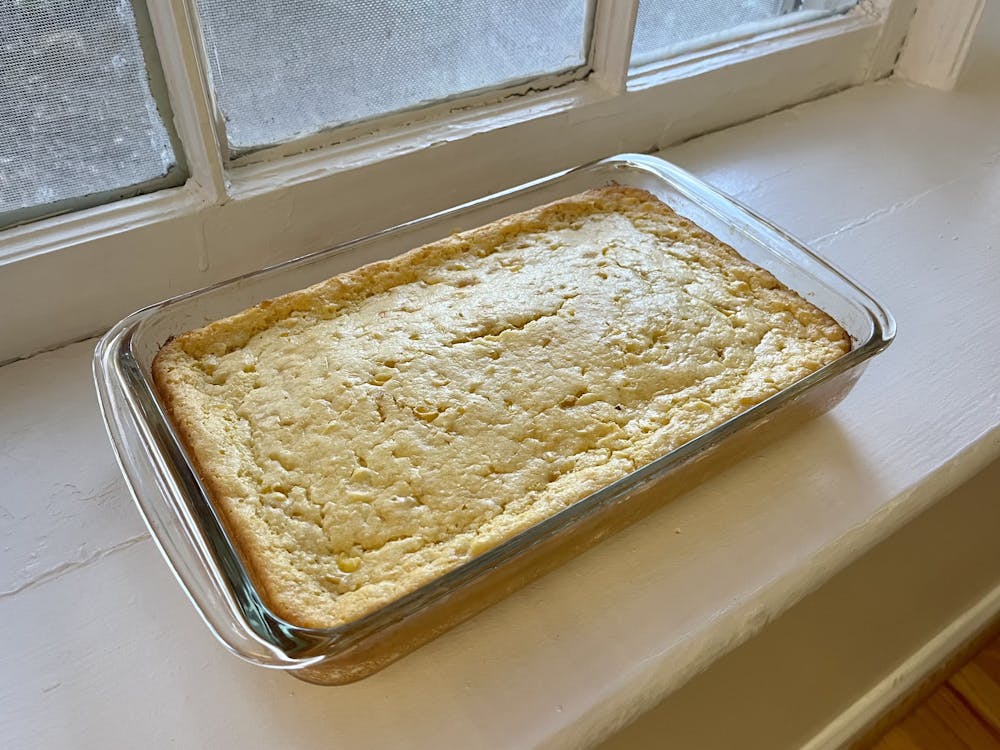I wasn’t having an academical day.
It was a 15-person Religious Studies seminar, and my readings were about as complete as I was focused. It was chance or fate or destiny, then, that I haphazardly tuned in just as my bowtie-sporting grandfather of a professor looked at us and asked, “So what does neologism mean?”
All of my synapses, previously unable to engage anything other than Gibson’s fancy honor pledge plaques, suddenly kicked in. Without knowing why the question was relevant, who else raised a hand or whether this was just some elaborate ploy to see who was paying attention, the words tumbled out of my mouth –
“It’s a newly invented word!”
Shoot. I immediately knew my response was too eager. I tried to save myself.
“I wrote my U.Va. essay on it.”
To clarify, I don’t often reference my college essays. But when you choose a favorite word so obscure, so beautifully logical in its breakdown — literally a combination of “neo” (new) and “logos” (word) — you’re going to feel connected to every once-in-a-purple-moon-because-even-blue-moons-happen-more-often mention of the term.
And you’re going to be downright dumbfounded when your professor tells you the word was one of Mr. Jefferson’s favorites.
It makes sense. In the land of “Grounds,” “first-years” and all things “academical,” of course it would be Jefferson who sees the potential in a word which epitomizes language’s own infinity, its ability to create and change itself. In a letter validating his decision to place military and naval architecture in the Department of Pure Mathematics, Jefferson made “neologism” into three different nouns, three adjectives, a verb and an adverb. “Dictionaries are but the depositories of words already legitimated by usage,” he said. “Society is the workshop in which new ones are elaborated.”
Well, then. To me, that begs the question — what are our neologisms? What words, phrases and sayings in our vernacular have been crafted from blocks of nonsense into meaningful displays of communication?
Across our generation, we have added words to the dictionary with every technological development and online comment. You can snap a selfie, tweet with a hashtag or Facebook your friend to share a video of someone twerking. You chose not to study over fall break because, well, YOLO. Besides, think of the case of FOMO you would have had if you didn’t make it to Zac Brown Band.
Language is communal, shared. We understand these references, as do most American teens and 20-somethings. But what about smaller communities both fostered and bolstered by language? There’s very specific U.Va. lingo that goes beyond the Jeffersonian words deemed pretentious, beyond every imaginable “hoo” pun out there. There’s a unique way we use language here, and we share it without a second thought.
There’s not a major nor an organization nor a school whose title has retained all of its original words and syllables — from Curry to the College and Jeff Soc to Cav Daily, we’ve got too much to say to waste time on full names and phrases, right? “Commerce” is just so much more difficult than “Comm” — which, incidentally, means “communications” at any other school.
We’ve got “the Corner” for a meal, and “streaking” has a specific connotation. You know that going to a Friday “darty” on “Rugby” probably doesn’t mean you’re interested in a European sports match. There was a period when every respectable football fan knew who “Number 97” was. You’ll be properly pitied if you tell your friend that you’re going to “first floor,” and “To Clem or not to Clem?” is a legitimate question.
You’ve heard this exchange before: “What’s your major? Are doing econ?” “No, I’m Comm.” This is probably not quite what you mean. I doubt your friend is questioning your romantic pursuits of the economics department, and it seems unlikely that you represent the entirety of the McIntire School of Commerce — after all, I’m not quite sure what you would do with that collection of stolen souls. But we say and hear these things thoughtlessly, because it’s a communal use of language that we’ve all come to accept and understand.
Our neologisms are not Jefferson’s neologisms. They lack the eloquence, but they gain accessibility; they are not exclusively invented words, but rather, they are the reinvention of words to give them new meaning. The community reinforced by a common vernacular is something we take for granted — but it shouldn’t be. We should take a moment to appreciate what we say and how we say it, because Virginia isn’t just in our blue and orange blood — it’s in our thoughts and words and expressions, and it’s the spoken way we convey these unspoken ties.
Think about it. It’s a very academical proposition.




